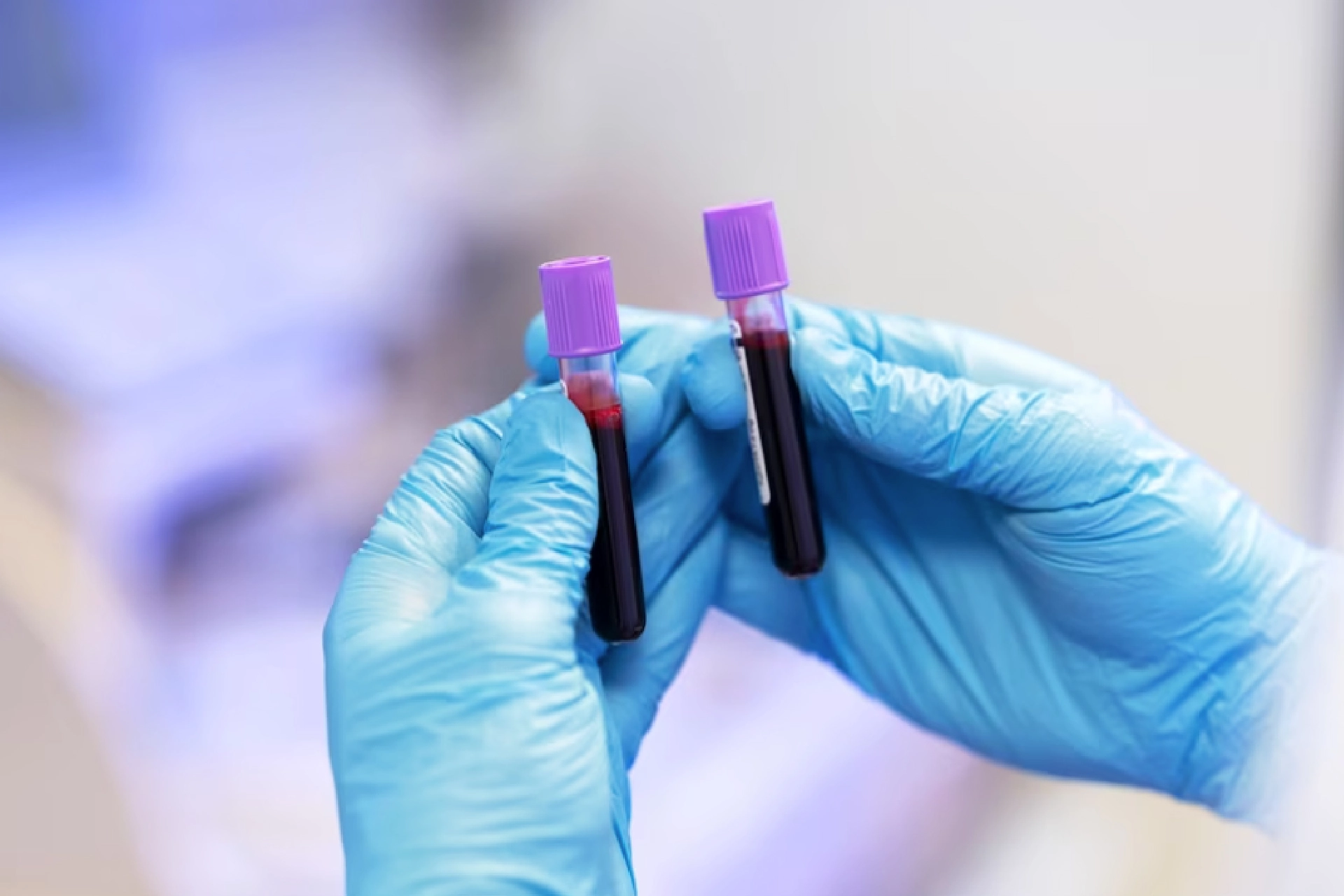Health Tests | 4 min read
Lung Diffusion Test: What it is and Why it is Done? Important Things to Know!
Medically reviewed by
Table of Content
Key Takeaways
- A lung diffusion test is done to diagnose lung-related problems
- High levels of diffusion capacity depict conditions like asthma
- Go for a lung test in case you are having respiratory problems
A lung diffusion test is a type of pulmonary test that measures how well your lungs exchange gases. With it, you can find how well your lungs are working and whether you have any pulmonary conditions. Some chronic respiratory diseases that it helps identify include:
chronic obstructive pulmonary disease (COPD)
pulmonary hypertension
The major function of your lungs is to diffuse oxygen into the blood and get rid of carbon dioxide from the blood. Lung diffusion is the ability to pass oxygen into the blood and pass back carbon dioxide into the lungs. If the lungs are damaged, they may fail to diffuse gases properly. A lung diffusion capacity test checks for lung damage by measuring the diffusion capacity of lungs. Read on to know more about this quick and harmless lung test.
Additional Read: What Is Lung Cancer? All You Need To Know About Its Symptoms and Treatment
Why Is a Lung Diffusion Test Done?
There are various reasons why a lung diffusion capacity test is done. Your doctor may use this test to diagnose or track lung-related conditions. The test is done to look for signs of suspected lung damage. It helps diagnose breathing problems and tracks the progress of current illnesses. Your doctor may use it to check how well a treatment is working or to check lung health before surgery.
The lung diffusion test is often done to screen if you are at risk of lung disease due to smoking or heart problems. Some of these include:
asthma
bronchitis
interstitial fibrosis
lung hemorrhage
pulmonary embolism
pulmonary hypertension
sarcoidosis [1]

How to Prepare for a Lung Diffusion Capacity Test?
A lung diffusion test requires little preparation as it is non-invasive. You should, however, follow your doctor’s guidance. They may tell you the following:
to continue with your medications or not
to refrain from smoking or using inhalers
to avoid eating and drinking for several hours
Your doctor may also ask you to stop using supplemental oxygen at least 10 minutes before the test. This is because an oxygen mask can alter the results by increasing oxygen levels. You should also check whether to avoid certain activities or exercises before the test.
How Is a Lung Diffusion Test Done?
The doctor may ask you to breathe into a mask that fits snugly over your mouth. A clip will be attached to your nose to ensure that the air you inhale and exhale comes from the apparatus. For the procedure, you inhale or breathe in a specific gas to your lungs’ capacity. Then, you need to hold your breath for 10 seconds. The air is then exhaled gently into a tube. The gas you inhale contains 0.3% carbon monoxide, 21% oxygen, nitrogen, 0.3% methane, or other tracer gas like helium. The amount of carbon monoxide and tracer gas is measured from the air you exhale.
However, the test may be performed differently in different clinics or labs. In some cases, a lung diffusion test involves inhaling and exhaling several times. Your blood may also be drawn out to measure the hemoglobin level. These results will be utilized to calculate the diffusion capacity of lung.
What Is the Normal Range for the Diffusion Capacity of Lungs?
The normal range can differ based on factors such as age, gender, height, and hemoglobin levels. Your doctor will consider these factors and come up with a predicted level of diffusion capacity. The normal range slightly varies among men and women. For men, the normal range for a lung diffusion test is 80% to 120% of its predicted value. For women, it is 76% to 120 % of the predicted value. Higher or lower readings mean that your lungs are not working efficiently.
What Does an Abnormal Lung Test Result Mean?
A low level of lung diffusion capacity indicates conditions like:
emphysema [2]
cystic fibrosis
pulmonary hypertension
congestive heart failure
A high level of lung diffusion capacity may depict:
pulmonary hemorrhage
high red blood cell count
Doctors will assess your results, risk factors, and symptoms to determine the cause. They may also order other pulmonary function tests to make a more detailed diagnosis.
Additional Read: Important Things to Know About Your Lungs This World Lung Cancer Day
Letting your doctor know about any lung disease symptoms or complications helps them make a proper diagnosis. You should not avoid any signs and seek medical help as soon as possible. You can book an appointment for a consultation with a specialist on Bajaj Finserv health. You can also book lab tests for various diagnostic tests including a lung diffusion test here.
References
- https://my.clevelandclinic.org/health/diseases/11863-sarcoidosis-overview#:~:text=What%20is%20sarcoidosis%3F-,Sarcoidosis%20is%20an%20inflammatory%20disease%20that%20affects%20one%20or%20more,more%20organs%20of%20the%20body.
- https://www.lung.org/lung-health-diseases/lung-disease-lookup/emphysema#:~:text=Emphysema%20is%20one%20of%20the,alveoli%20(tiny%20air%20sacs).
Disclaimer
Please note that this article is solely meant for informational purposes and Bajaj Finserv Health Limited (“BFHL”) does not shoulder any responsibility of the views/advice/information expressed/given by the writer/reviewer/originator. This article should not be considered as a substitute for any medical advice, diagnosis or treatment. Always consult with your trusted physician/qualified healthcare professional to evaluate your medical condition. The above article has been reviewed by a qualified doctor and BFHL is not responsible for any damages for any information or services provided by any third party.





